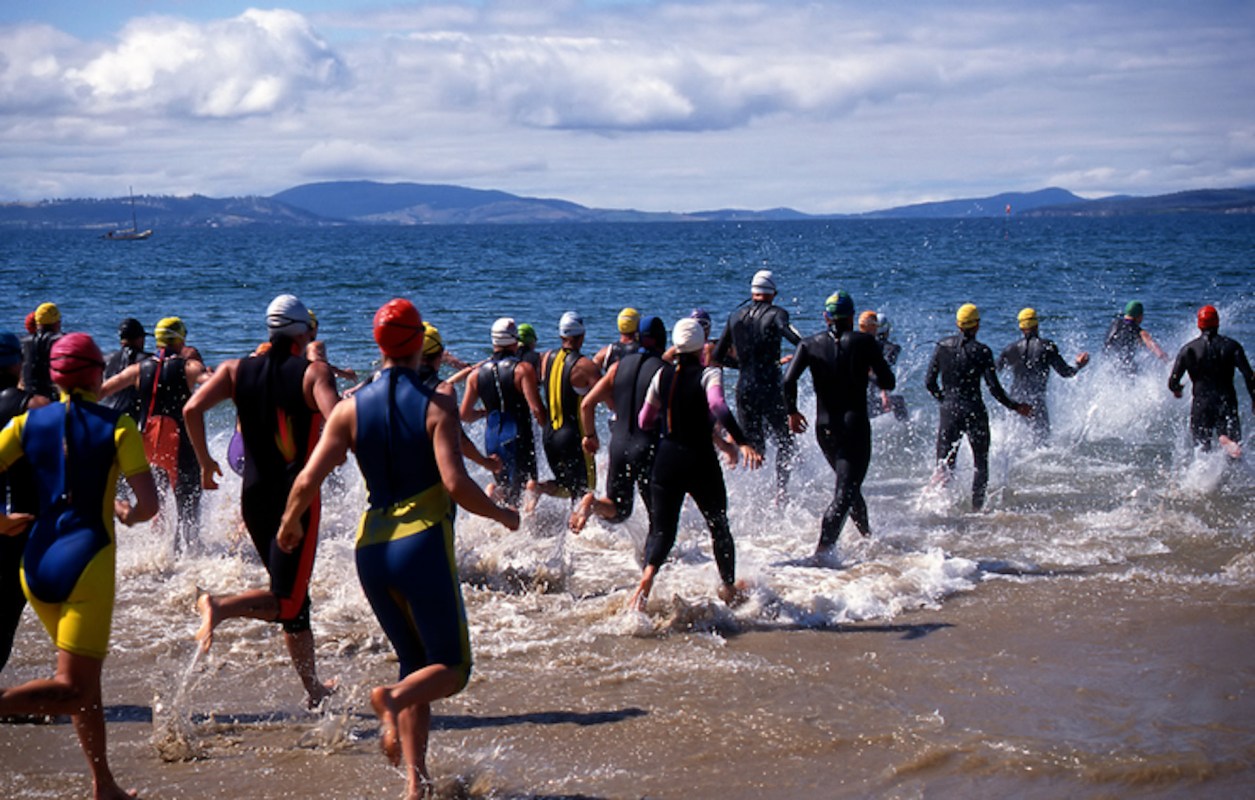The 38th annual Malibu Triathlon went ahead as planned after the fate of the charity race was called into question when an endangered fish was found in flood waters that covered part of the course.
The race took place Sept. 30 through Oct. 1 following a Malibu City Council vote on the matter early on the morning of Tuesday the 26th, according to The Hollywood Reporter. The triathlon brings in more than $1 million annually for pediatric cancer research at Children's Hospital Los Angeles.
Usually, the cycling portion of the swim, bike, and run contest goes from Zuma Beach to Leo Carrillo State Park. However, the fate of the race was called into question after a species of endangered fish — a Northern tidewater goby — moved into a floodwater-inundated underpass at Zuma Beach that is critical to the race path.
Triathlon organizers worked with the City of Malibu, the California Department of Fish and Wildlife, and the Los Angeles County Department of Beaches and Harbors to come up with a new race path to protect the fish and their new home while also allowing the event to go on as scheduled.
A proposal to change the race route was apparently denied at first on a technicality due to a city rule that says all event organizers are required to notify nearby residents at least 32 days before the event. Organizers weren't advised about the goby-inhabited underpass until Aug. 28, which was already past the deadline.
At the subsequent city council meeting on the matter, it came to light that officials actually had sent out notices to the people who live in the area of the new race path in a timely fashion, according to The Hollywood Reporter. This, combined with the fact that locals have gotten used to the ritual of the annual triathlon, was enough to get the event a green light.
Changes to the bike course involved cutting the Olympic Distance portion from 25 miles to 14.4 miles, and the Classic Distance portion from 17 miles to 10.8 miles. The new, shorter course includes multiple loops around the beach parking lot and Pacific Coast Highway.
The tidewater goby has been protected under the Endangered Species Act since 1994. The two-inch fish thrived in the brackish water of the Golden State's coastal estuaries and lagoons until the 1980s when populations began declining for unknown reasons. It is threatened by drought, predation by invasive species, and the disappearance of its habitat.
More than 90% of estuaries and lagoons in California have been developed or destroyed, according to the United States Fish and Wildlife Service (FWS).
"This delicate balance of salt and freshwater, or brackish water, provides a place for food, feeding, breeding and migration for a wide variety of fish, plants, and wildlife, including the tidewater goby," according to FWS.
FWS noted lagoons such as the Malibu Lagoon "nurture biodiversity and allow it to thrive, but they also help produce fish, store carbon dioxide, purify water, and protect shorelines from floods and erosion."
Fisheries use the habitats for breeding and feeding, and they encourage recreation and boost the local economy, according to FWS, which has led biologists and water scientists to restore the state's remaining estuaries and lagoons.
Join our free newsletter for cool news and cool tips that make it easy to help yourself while helping the planet.









